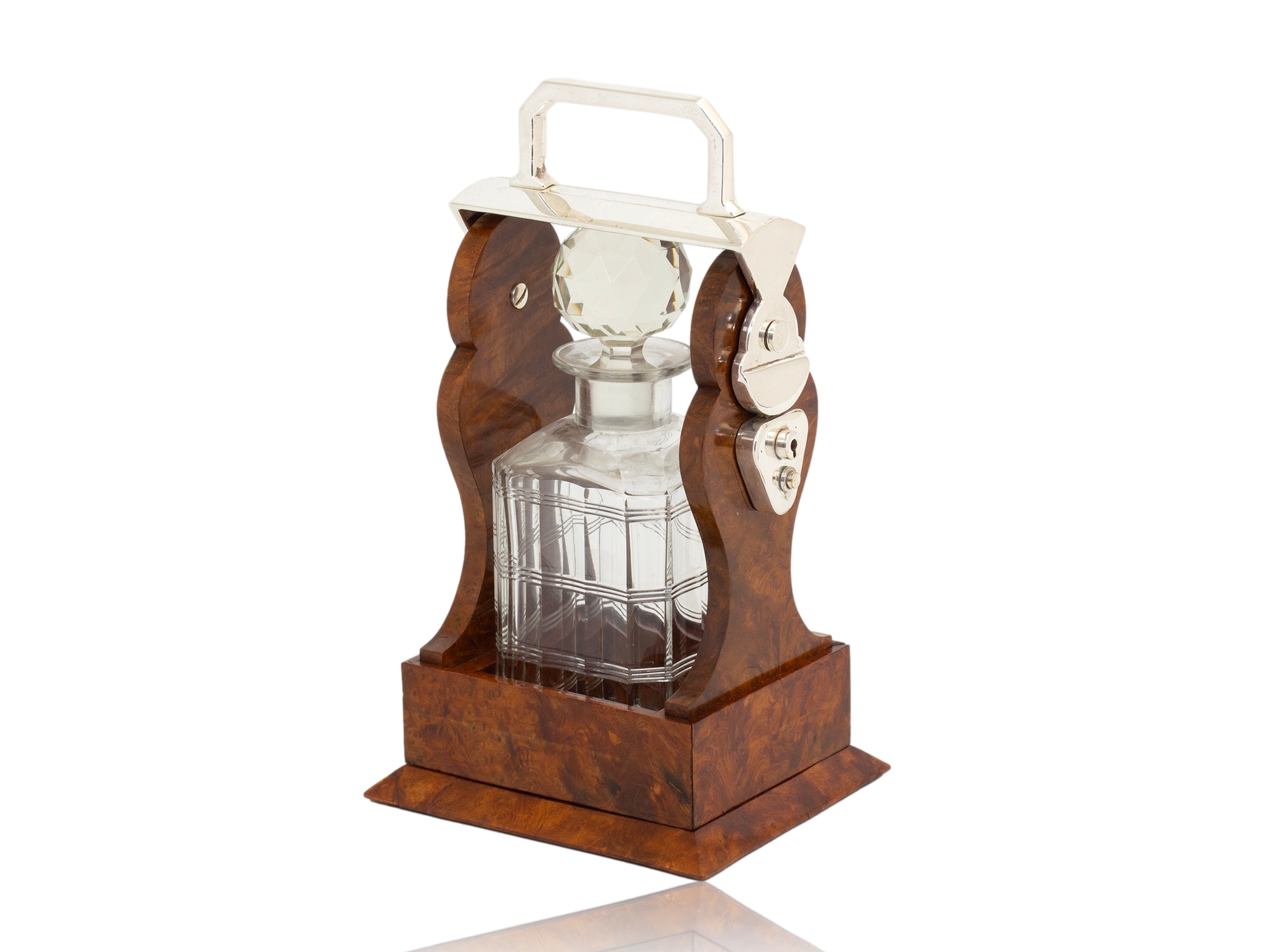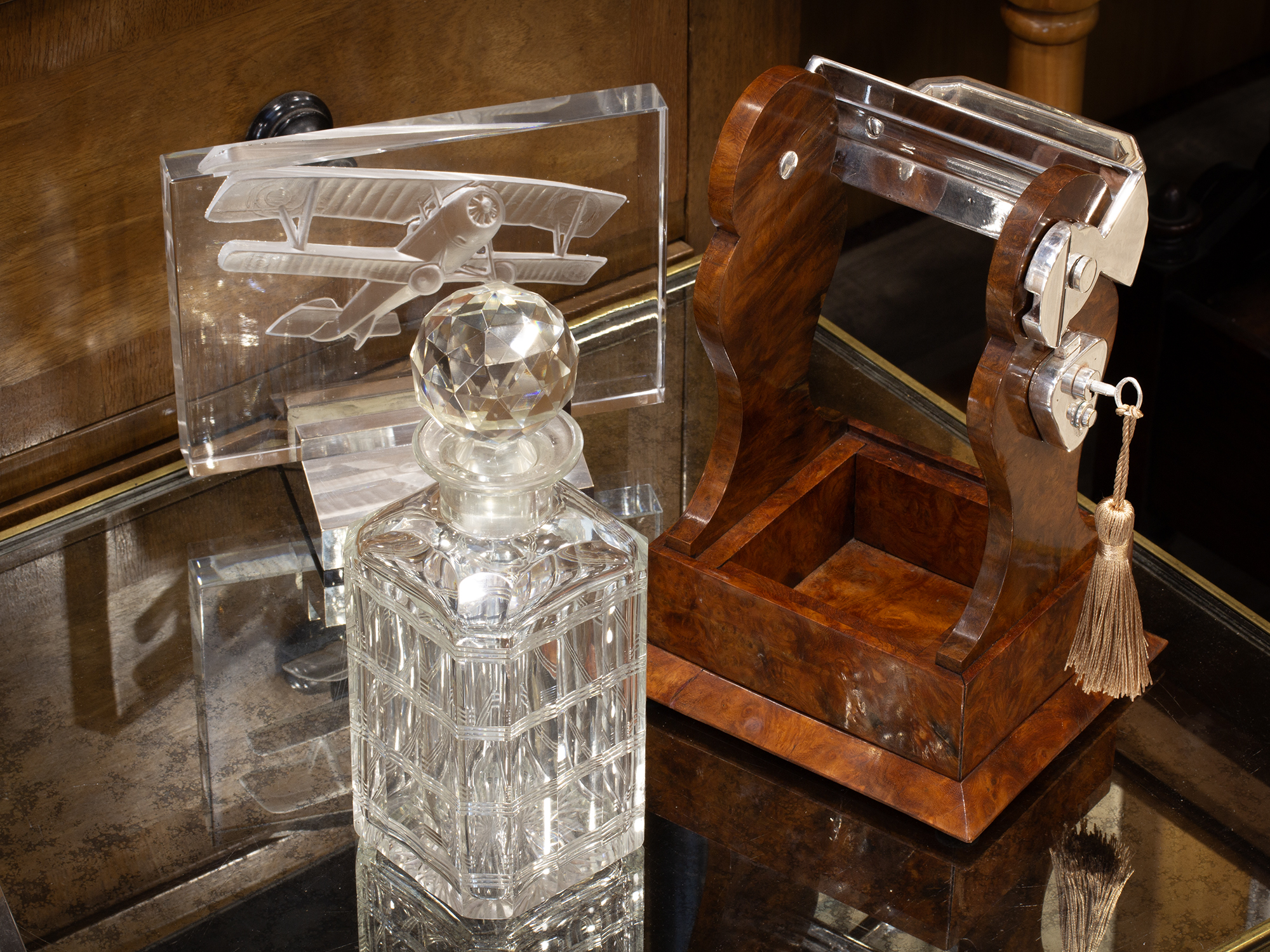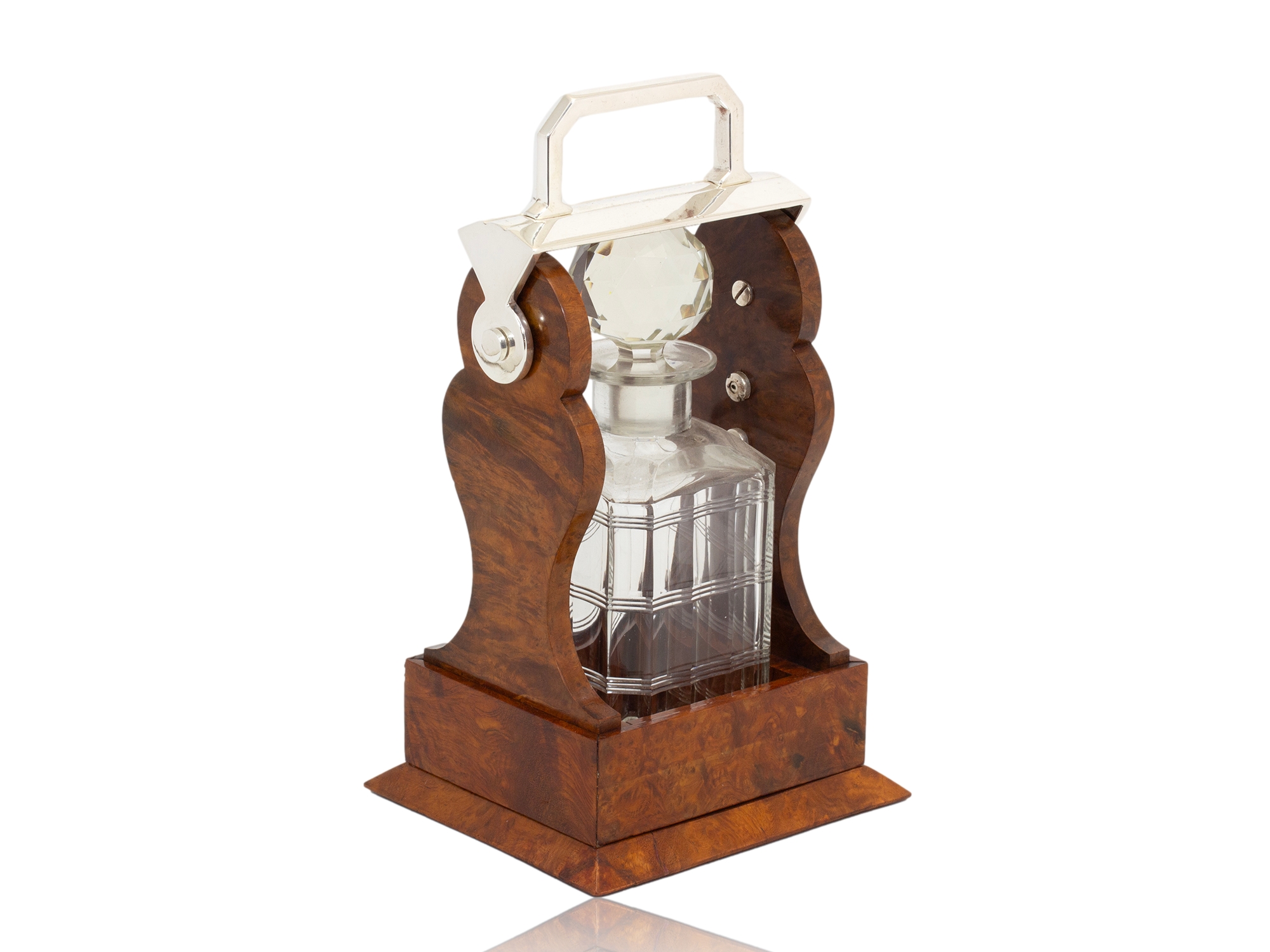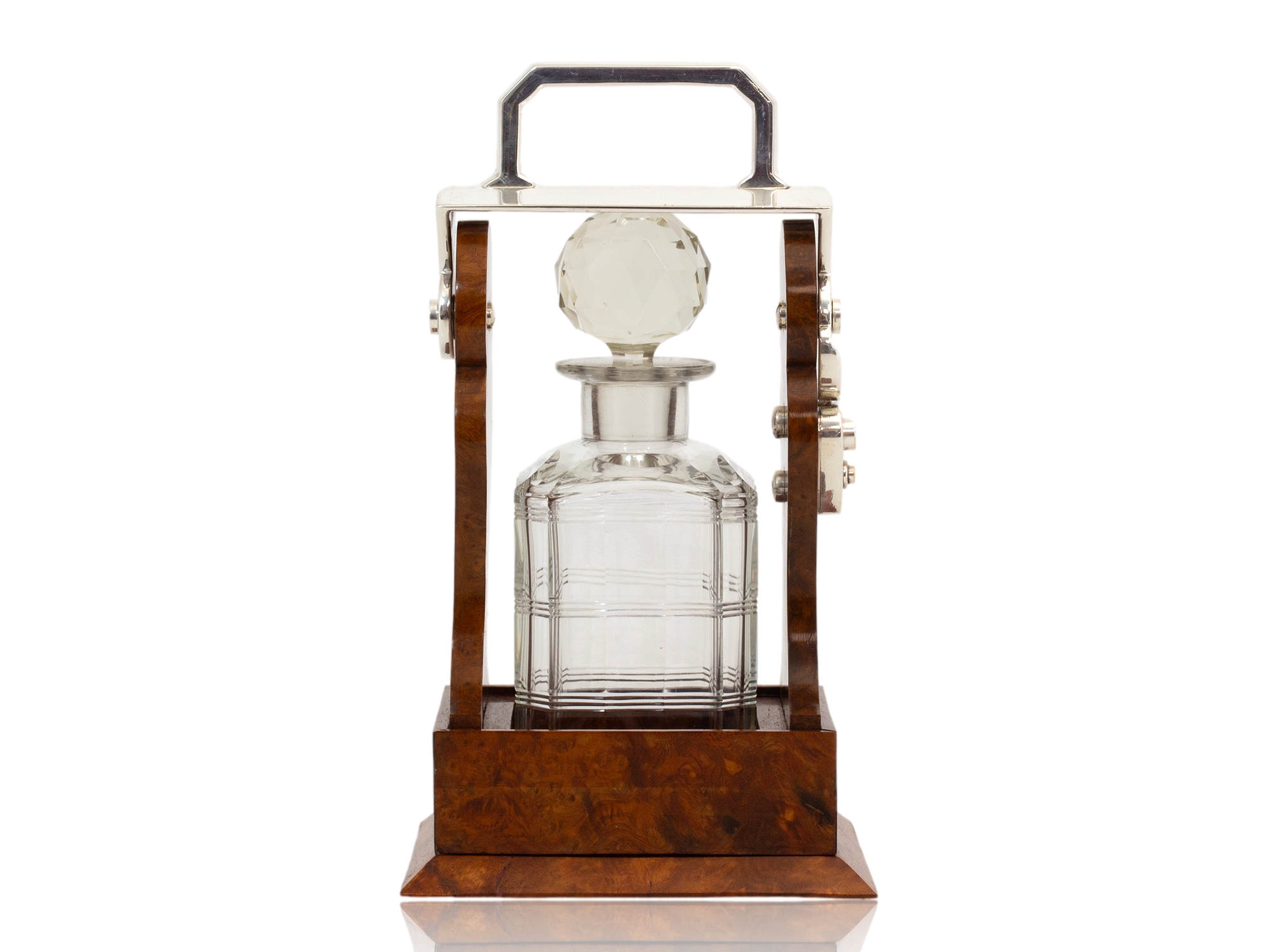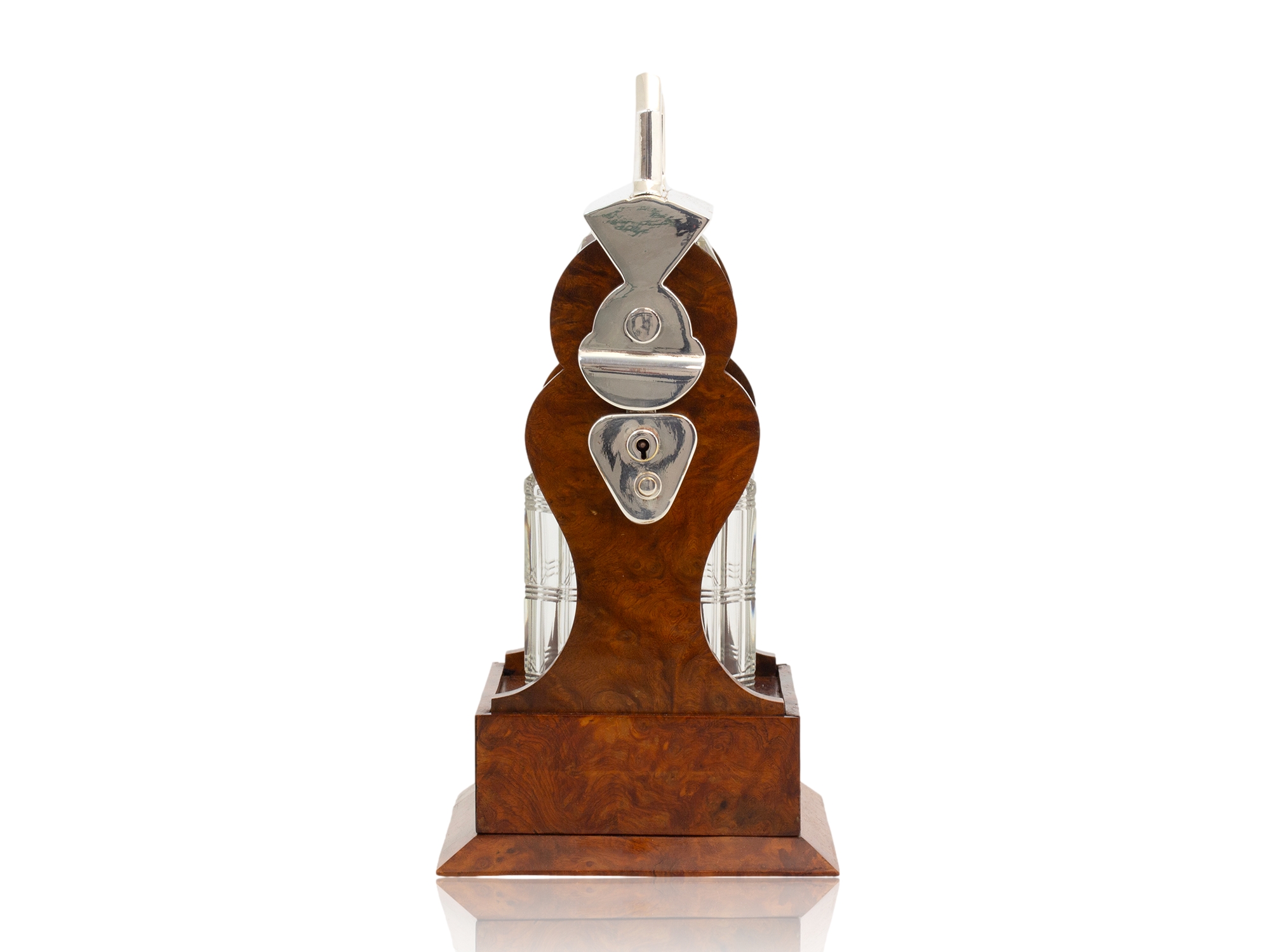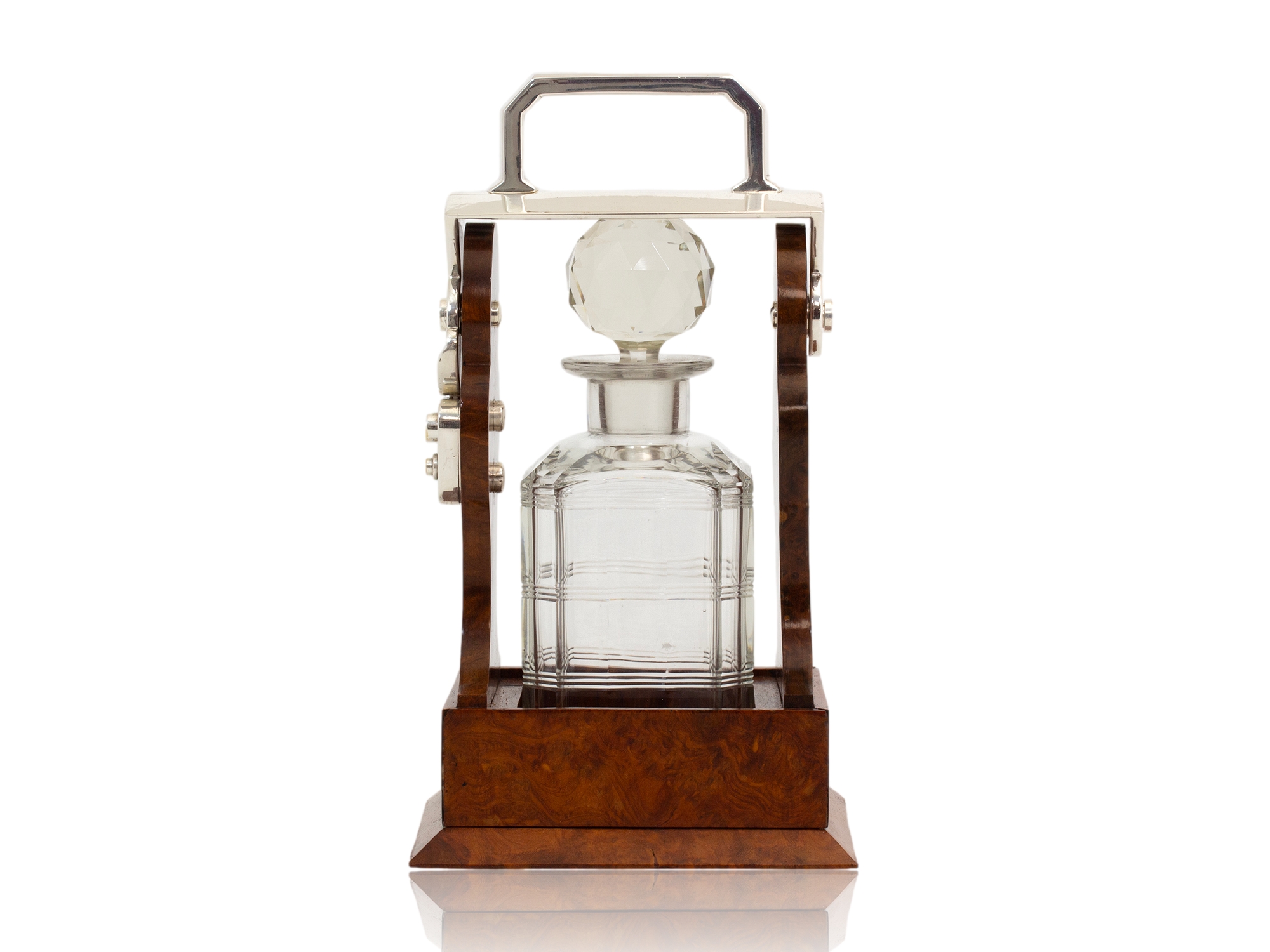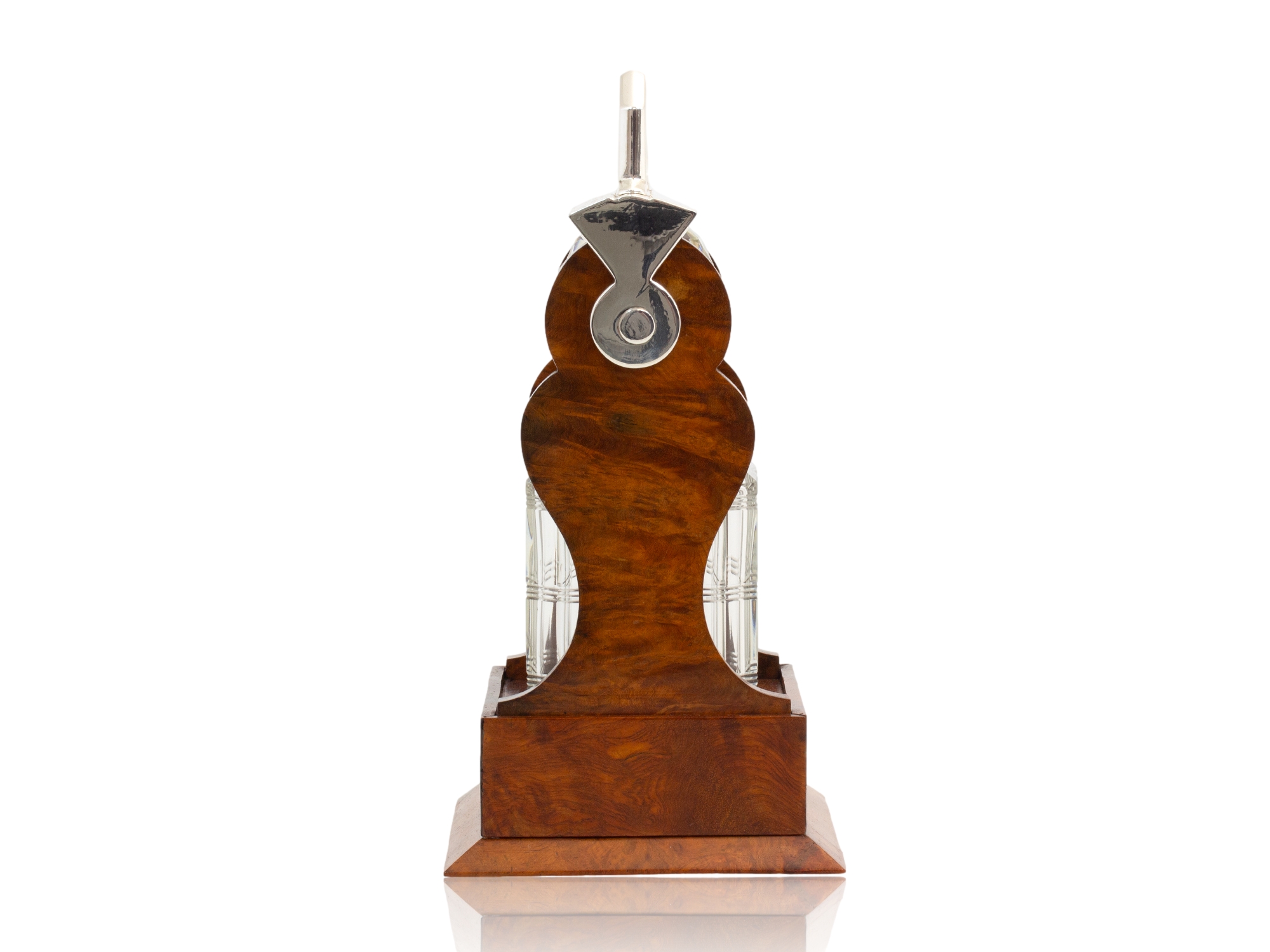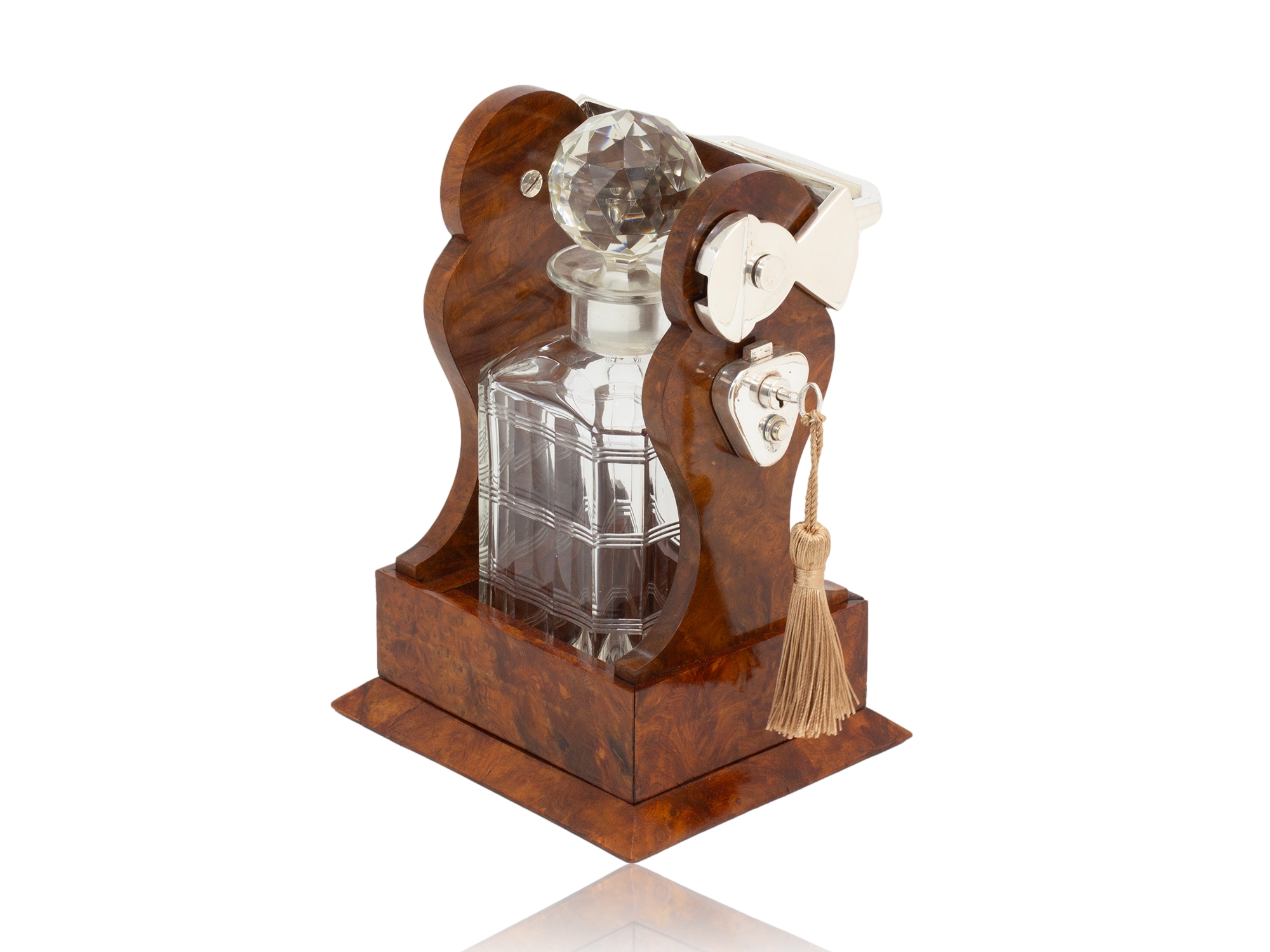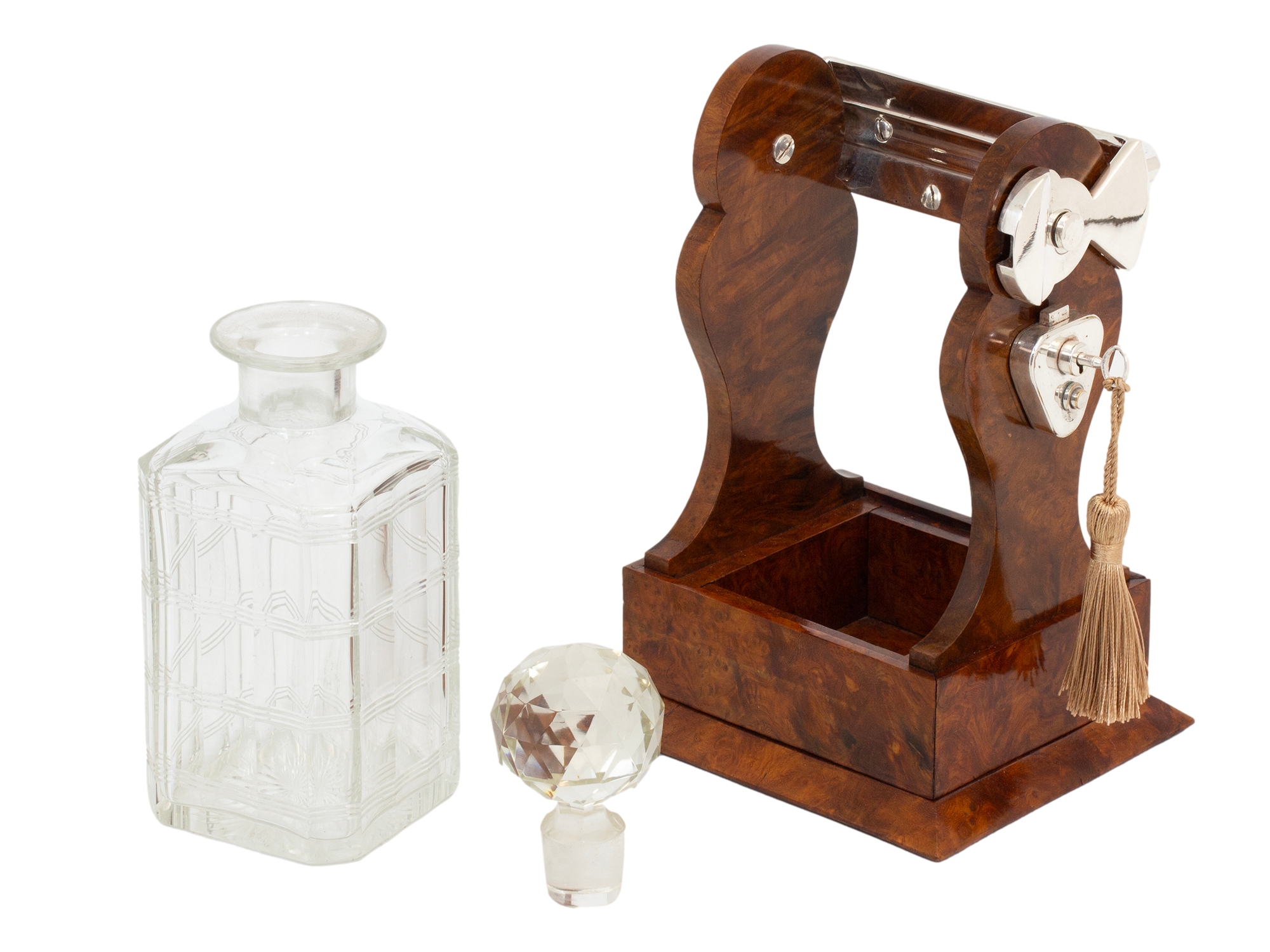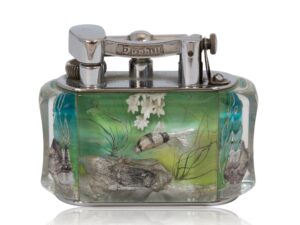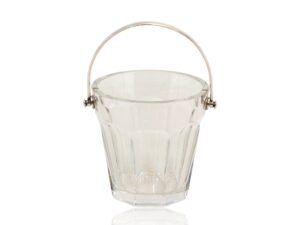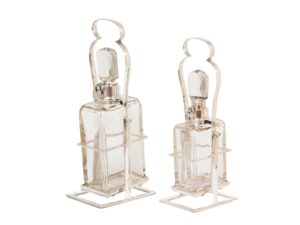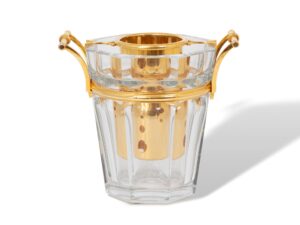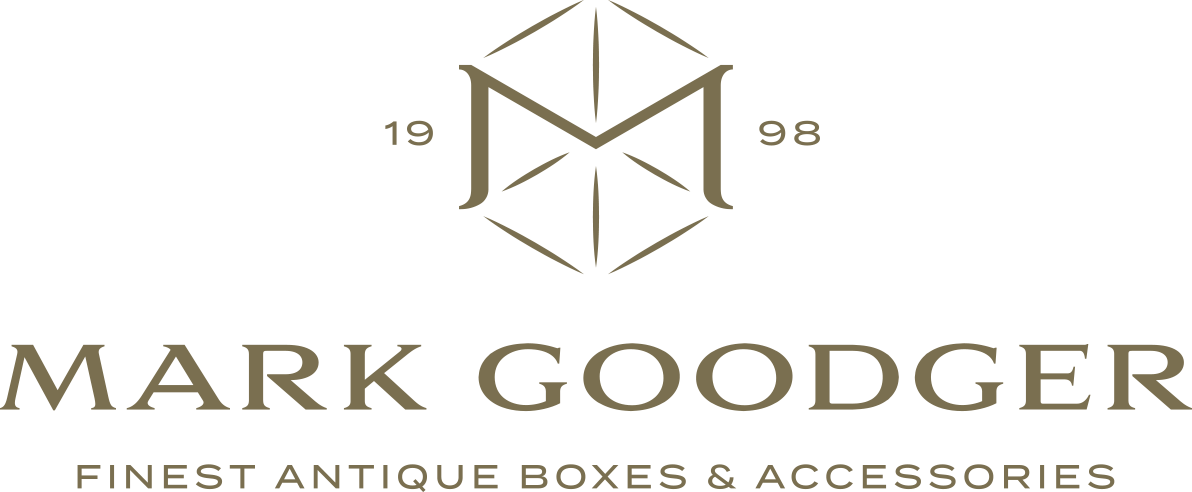Victorian Amboyna Tantalus Betjemann
£1,850.00
Silver Plated Handle From our Tantalus collection, we are pleased to offer this very rare Victorian Amboyna Tantalus. The Tantalus from the original Betjemann design with a solid Amboyna body and spread plinth base. The handle and locking plate cast... Read More
In Solid Amboyna

| Dimensions | 16 × 14 × 28 cm |
|---|---|
| Country | |
| Medium | |
| Period | |
| Year | |
| SKU | 501389-TGCE |
Description
Description
Silver Plated Handle
From our Tantalus collection, we are pleased to offer this very rare Victorian Amboyna Tantalus. The Tantalus from the original Betjemann design with a solid Amboyna body and spread plinth base. The handle and locking plate cast in metal and finished in silver plate with the original key to unlock the mechanism. The Tantalus holds a squared cut crystal glass decanter with canted corners and a multi faceted stopper finished with a ribbed horizontal design. The Tantalus is from the original design by George Betjemann and dates to the late 19th century during the Victorian period circa 1885.
The Tantalus comes complete with working lock and tasselled key.
Amboyna also known as Andaman Padauk, Maiou or Narra grows in parts of East Asia (Malaysia, the Philippines and Borneo) and is often golden brown to red brown in colour with red grain. It is a firm wood with wavy and often interlocking grain making it difficult to work with hand tools, despite this it turns well and produces a high polish. The Burr from these trees varies in colour from a golden yellow to a deep red with sharp, close burr pips. It is very sought after and used for only the finest furniture.
Betjemann & Sons George Betjemann started as an apprentice cabinet maker from a young age working for his Father in Law. In 1848, his two sons George William Betjemann and John Betjemann joined him under apprenticeships until 1846 when George William Betjemann started his own business with his two sons. In 1859 George moved to a new premises on Pentonville road, London. This was when the business became known as ‘Betjemann & Sons’. John Betjemann was grandfather of the later famous poet laureate Sir John Betjemann.
Victorian an era of British History corresponding approximately with the reign of Queen Victoria from the 20th of June 1837 until her death on 22 January 1901 however, there are arguments stating that the Victorian era is actually from 1820 until 1914 proceeded by Georgian era and followed by the Edwardian era.
Tantalus, the origin traces back to the 19th century in England when a German born cabinetmaker George Betjemann patented the Tantalus model in 1881 (UK Patent 58948). Betjemann & Sons had workshops at 34–42 Pentonville Road, London from the 1830s specialising in high quality Boxes for various uses and Decanter sets including the Tantalus.
The name ‘Tantalus’ is a reference to the unsatisfied temptations of the Greek mythological character Tantalus, son of Zeus. It is told that he was trapped in Tartarus, made to stand in a pool of water beneath a fruit tree with low hanging branches. The fruit would forever elude his grasp and the pool would recede before he was able to quench his thirst. The story is in reference to the lockable aspect of the Tantalus eluding anyone trying to access the decanters without the key.
With every purchase from Mark Goodger Antiques, you will receive our latest catalogue, a Certificate of Authenticity, detailed care instructions for your chosen piece and an independent invoice (for insurance purposes) will be enclosed. As well as being protected by a no-hassle, money-back policy, your piece will be entirely insured during the shipping process to ensure the safety of your item.
Additional information
Additional information
| Dimensions | 16 × 14 × 28 cm |
|---|---|
| Country | |
| Medium | |
| Period | |
| Year | |
| SKU | 501389-TGCE |
